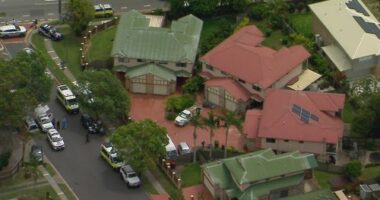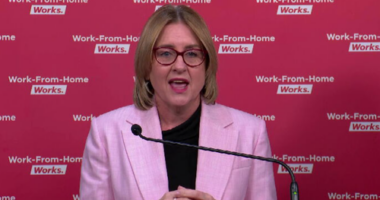Share this @internewscast.com
Rebecca Eckart, the head of policy and research at the Refugee Council of Australia, has announced that the issuance of Australia’s millionth permanent humanitarian visa is on the horizon. This milestone highlights the significant impact of the country’s refugee and humanitarian efforts over the past eight decades.
“That means we’ll have had the benefit of over the past 80 years, people who have come through our refugee and humanitarian program arriving in Australia,” she said.
Refugees in Australia
The Vietnam War also prompted a large-scale response, with 100,000 settlements over 10 years.
“Today, there’s millions of people who are connected to our humanitarian program, either directly or through their parents, grandparents, or great grandparents. It’s a really momentous time,” she said.
Australia’s approach to asylum seekers
“But also to use this moment to reassess some of our current approaches and to try and return to our better instincts,” he said.
Just over 81,000 were issued to those seeking protection after arriving in Australia.
The offshore processing policy has received bipartisan support since 2012 — but Ghezelbash said Australia’s asylum policies have been the subject of widespread international criticism.
As Australia prepares to welcome its one millionth refugee on a permanent visa, Ghezelbash said there is cause for celebration alongside urgent calls for reform.
Tahera Nassrat was forced to flee Afghanistan more than 25 years ago and now works as a tax accountant and business coach in Sydney’s west. She is also the founder of the Afghan Peace Foundation, an organisation that provides financial guidance and employment support to others from refugee backgrounds.
Nassrat said a shift in narrative is needed so that those who seek protection are no longer seen as a political problem.












